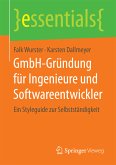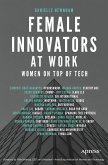This book explores research from the researchers’ perspective: why to engage in research, what methods to follow, how to operate in daily life, what the responsibilities are, how to engage with society, and the ethical issues confronting professionals in their day-to-day research.
The book systematically discusses what every student should be told when entering academic or industrial research so that they can avoid going through the painful process of learning by personal experience and lots of errors. Rather than being technical, it is philosophical and sometimes even anecdotal, combining factual information and commonly accepted knowledge on research and its methods, while at the same time clearly distinguishing between objective and factual concepts and data, and subjective considerations.
The book is about scientific research in general and as such holds true for any scientific field. However, it is fair to say that the different fields differ in their research cultures and in their eco-systems. The book reflects the author’s experience accumulated over almost 50 years of teaching graduate courses and lecturing in doctoral symposia at Politecnico di Milano, University of Zurich, TU Wien, Peking University, and at various conferences, and of academic research in informatics (also known as computer science).
This book is mainly intended for students who are considering research as a possible career option; for in-progress researchers who have entered doctoral programs; and for junior postdoctoral researchers. It will also appeal to senior researchers involved in mentoring students and junior researchers.
The book systematically discusses what every student should be told when entering academic or industrial research so that they can avoid going through the painful process of learning by personal experience and lots of errors. Rather than being technical, it is philosophical and sometimes even anecdotal, combining factual information and commonly accepted knowledge on research and its methods, while at the same time clearly distinguishing between objective and factual concepts and data, and subjective considerations.
The book is about scientific research in general and as such holds true for any scientific field. However, it is fair to say that the different fields differ in their research cultures and in their eco-systems. The book reflects the author’s experience accumulated over almost 50 years of teaching graduate courses and lecturing in doctoral symposia at Politecnico di Milano, University of Zurich, TU Wien, Peking University, and at various conferences, and of academic research in informatics (also known as computer science).
This book is mainly intended for students who are considering research as a possible career option; for in-progress researchers who have entered doctoral programs; and for junior postdoctoral researchers. It will also appeal to senior researchers involved in mentoring students and junior researchers.








